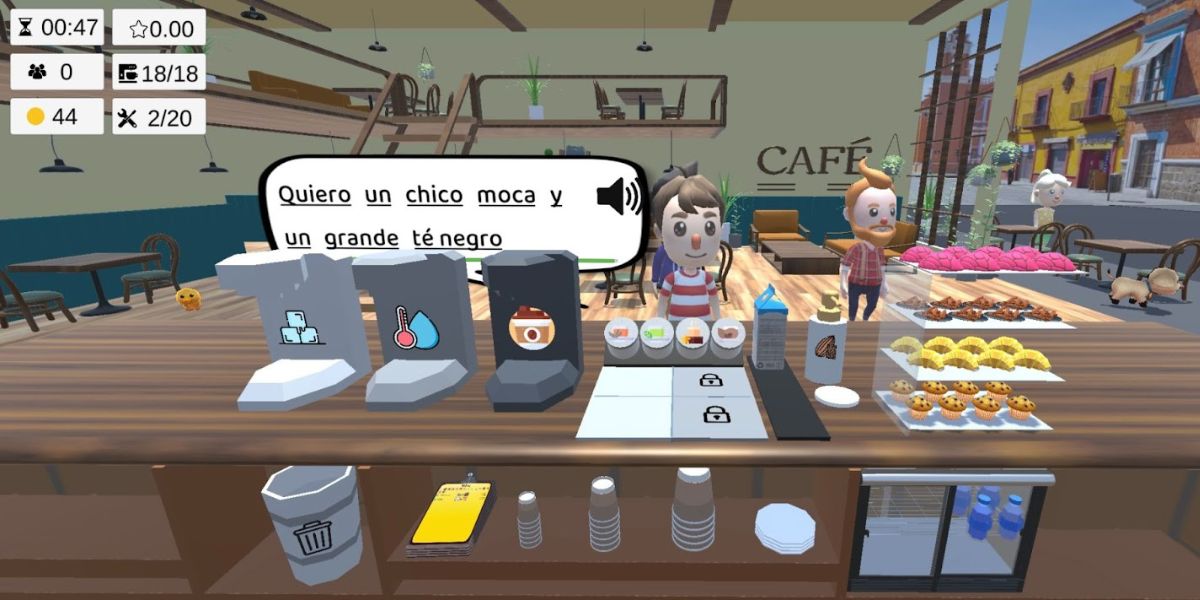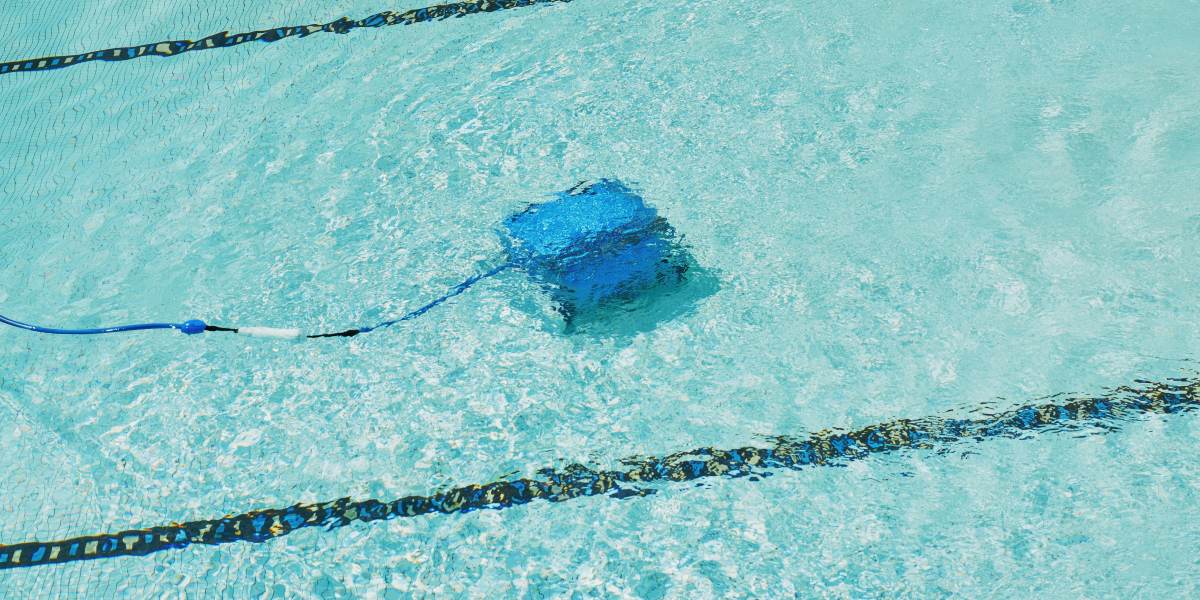By: Yasser Abdelshafy
Jack Du’s career has followed a path that is anything but traditional. The biomedical researcher-turned-serial entrepreneur has developed a diverse skill set through his experiences in scientific research, problem solving, international event management, teaching, and athletic coaching. This varied journey has proven to be a valuable asset, fostering an integrative mindset that connects different concepts and applies existing technologies to address enduring challenges.
This is particularly evident in his first startup, Lost Abroad, an immersive language-learning game venture. The company’s debut product, “Lost Abroad Café,” is the first app to incorporate life-simulation gaming mechanics into language learning—an approach that had not been widely commercialized prior to its release.
The game works to solve the longstanding issue of making language education more engaging, effective, and applicable to real-life situations. Players are not merely passive learners, but actively engage with the virtual world.
Here’s how it works: in Lost Abroad Café, players take on the role of a café owner, with virtual customers coming in to place orders. The challenge is to determine the meaning of the orders and serve the correct items. This problem-solving element makes the game enjoyable, and the repetitive nature helps the language stick—without players realizing it due to the game’s fun nature. As players progress, they can unlock additional ingredients, and the orders become more complex, ensuring that the challenge remains appropriate for their level. The most rewarding part is seeing visible progress in the game, as players’ cafés evolve, showcasing how much they’ve learned. Furthermore, the game teaches real phrases that can be used in a real café setting, making the learning experience directly applicable.
The concept, which blends the accessibility of language apps with the immersive practice of real-world interaction, may seem simple in hindsight. However, it required an entrepreneurial mindset like Jack’s—shaped by his experience as a teacher, where he understood the motivation of students and the gaps in their learning needs, along with his research background in testing solutions and quantifying their impact—to bring it to fruition as a commercially viable product. The venture received recognition for its innovation, winning the 2020 Anderson Product Innovation Challenge and the “Fast Pitch” at the 2022 Knapp Venture Competition. Jack was also honored with the UCLA Price Fellowship for Entrepreneurship, as the sole recipient in a class of 360 MBA students in 2021.
After earning two science degrees with high honors, Jack initially followed a conventional career in cancer research. He then transitioned to a position as an application specialist at a medical device company. However, Jack soon found himself disillusioned with the industry, especially after discovering the prevalence of kickbacks being offered to doctors—a practice that conflicted with his goal of helping treat patients rather than contributing to their financial burdens.
A serendipitous opportunity led him down a different path. When the 2014 Youth Olympic Games came to his hometown of Nanjing, Jack joined as the new media manager, tasked with implementing a paperless networking initiative. He quickly advanced to the role of manager of the information center, where he trained 60 multilingual volunteers and 3 deputy managers to support 3,579 athletes from 205 countries and regions. This experience sparked a passion for working with young people from diverse backgrounds who were eager to learn about new cultures. It ultimately inspired him to pivot toward education, where he could share his enthusiasm for biology and his Chinese heritage. Jack returned to his alma mater in New Zealand to pursue a teaching diploma, an accomplishment that earned him the Teacher Education Excellence Award.

As a science and biology teacher at Paraparaumu College in New Zealand, Jack’s entrepreneurial spirit blossomed. He recognized the need to foster cultural dialogue and understanding between his new community and the culture he had grown up in. With a deep belief that understanding promotes peace and cooperation, Jack single-handedly launched the school’s Mandarin Chinese program, growing it by 370% on a modest annual budget of $650. He achieved this by engaging students with educational technology, gamification, and cultural activities like dumpling making, calligraphy, and martial arts. He also demonstrated his knack for product development by designing an MVP automation app that reduced his department’s assessment reporting time by 91%.
The seed for Lost Abroad was planted when Jack’s Mandarin students expressed interest in an immersion trip to China. Both Jack and the students were excited, and they began raising funds—only for COVID-19 to disrupt their plans. This new reality led Jack to find a way to bring immersive language learning to his students in their rural town.
Recognizing the limitations of existing language apps, which lacked real-world conversational practice, Jack found inspiration in an unlikely place: the life-simulation games that students often played during class. These games captured students’ attention due to their engaging and immersive nature—yet they didn’t offer any language learning. Jack realized that he could create something similar, but with language learning at its core. This insight eventually led to the creation of Lost Abroad.
Realizing the need to enhance his business acumen, Jack applied to the prestigious MBA program at UCLA Anderson School of Management. There, he found co-founders with complementary skill sets, refined his concept, and conducted over 100 hours of interviews to gather feedback. After mapping customer journeys and building a basic version of the game, Jack employed a rigorous iterative testing process—collecting feedback, implementing improvements, and testing again. In just 10 months, this approach led to a notable increase in customer satisfaction and user activation, even with limited funding from the initial award winnings. The result was an engaging product that performed well in comparison to industry giants, such as Duolingo, with an average session length nearly three times that of its competitors.

From managing 60+ multilingual volunteers at the Youth Olympic Games in Nanjing to transforming language education in New Zealand and innovating in the U.S. EdTech ecosystem, Jack Du’s career has consistently created bridges of learning and culture. His ventures expand access to immersive education for students who would otherwise be excluded by cost or geography—making his work globally impactful. Today, he continues to innovate at the intersection of technology and user engagement through his new startup, Newcast AI. Using AI-driven video and voice agents, Jack aims to revolutionize marketing, sales, customer support, and other industries, making them more responsive and human-centered. Much like Lost Abroad, this new venture leverages his fascination with avatars and virtual interaction to engage and serve users, demonstrating his ability to adapt concepts across entirely different industries—turning them into novel solutions to age-old problems.






